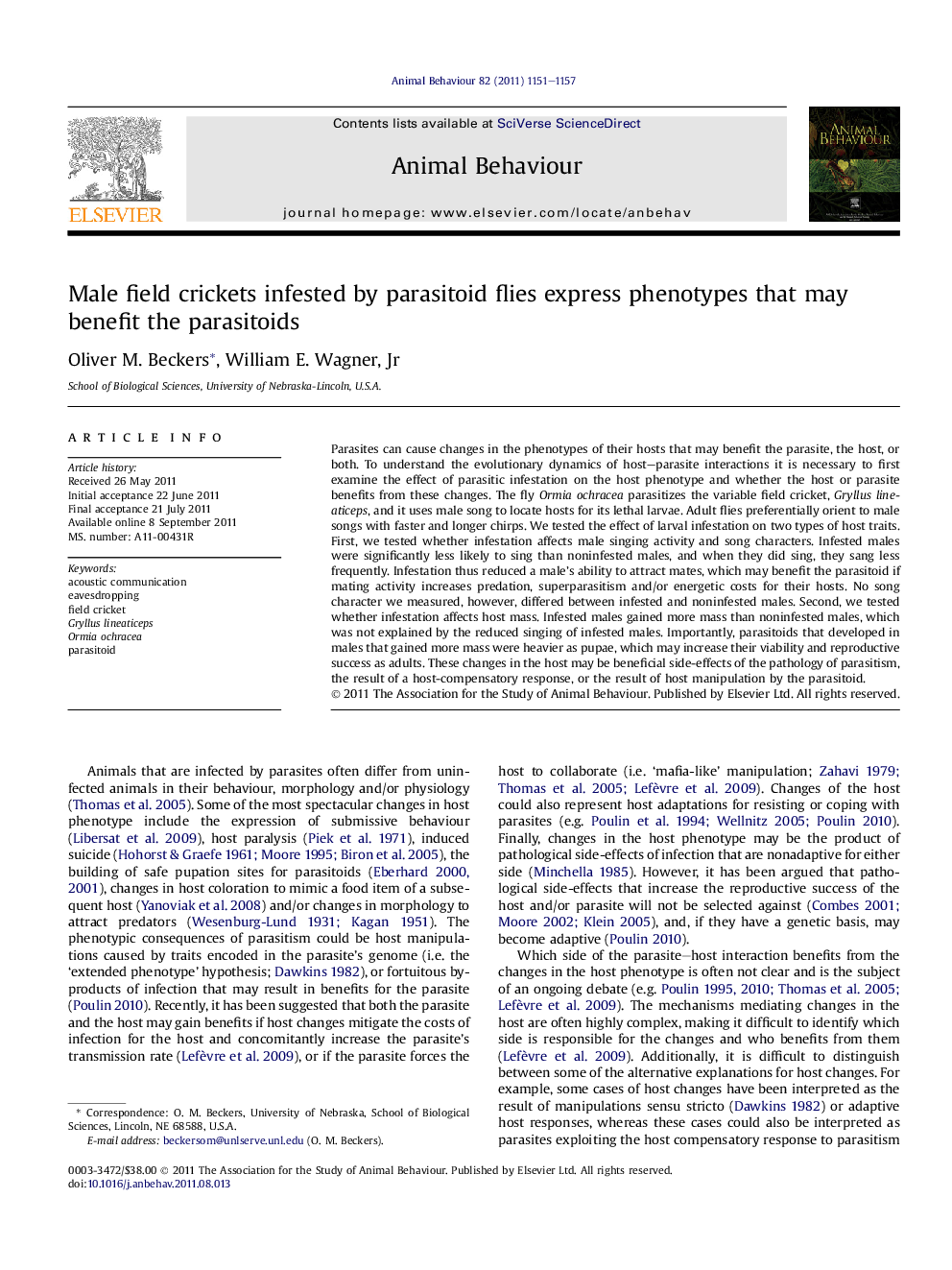| Article ID | Journal | Published Year | Pages | File Type |
|---|---|---|---|---|
| 2416937 | Animal Behaviour | 2011 | 7 Pages |
Parasites can cause changes in the phenotypes of their hosts that may benefit the parasite, the host, or both. To understand the evolutionary dynamics of host–parasite interactions it is necessary to first examine the effect of parasitic infestation on the host phenotype and whether the host or parasite benefits from these changes. The fly Ormia ochracea parasitizes the variable field cricket, Gryllus lineaticeps, and it uses male song to locate hosts for its lethal larvae. Adult flies preferentially orient to male songs with faster and longer chirps. We tested the effect of larval infestation on two types of host traits. First, we tested whether infestation affects male singing activity and song characters. Infested males were significantly less likely to sing than noninfested males, and when they did sing, they sang less frequently. Infestation thus reduced a male’s ability to attract mates, which may benefit the parasitoid if mating activity increases predation, superparasitism and/or energetic costs for their hosts. No song character we measured, however, differed between infested and noninfested males. Second, we tested whether infestation affects host mass. Infested males gained more mass than noninfested males, which was not explained by the reduced singing of infested males. Importantly, parasitoids that developed in males that gained more mass were heavier as pupae, which may increase their viability and reproductive success as adults. These changes in the host may be beneficial side-effects of the pathology of parasitism, the result of a host-compensatory response, or the result of host manipulation by the parasitoid.
► We tested effects of Ormia ochracea larval infestation on the singing activity, songs and mass of Gryllus lineaticeps. ► Infested males were significantly less likely to sing than noninfested males, but did not differ in their songs. ► Infested males gained significantly more mass than noninfested males. ► Parasitoid larvae that developed in males that gained more mass were heavier as pupae. ► Changes in host traits seem to benefit the parasitoid, but they may also be side-effects of a general immune response.
